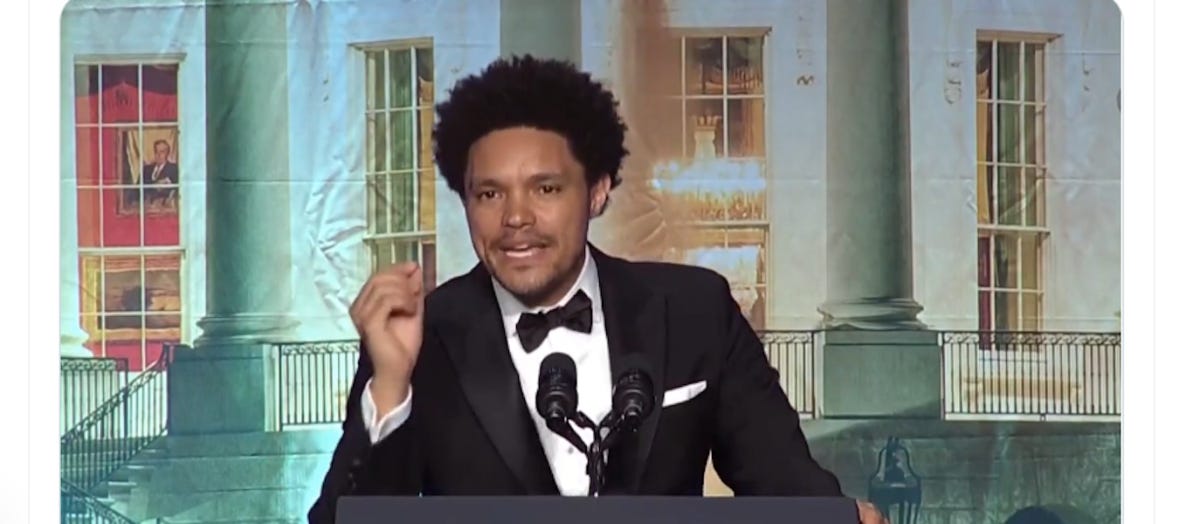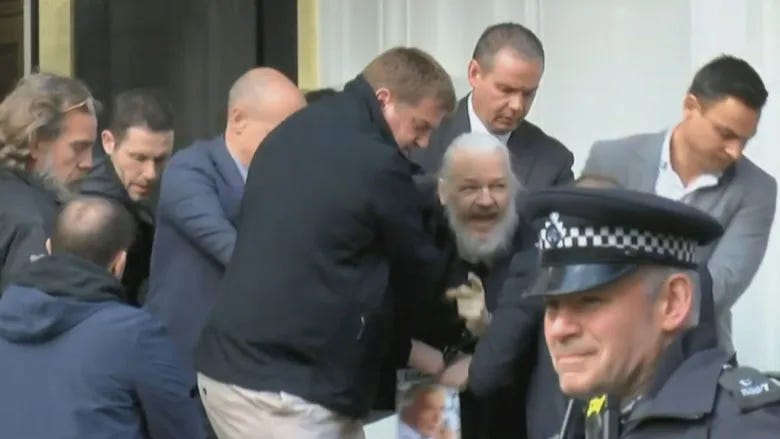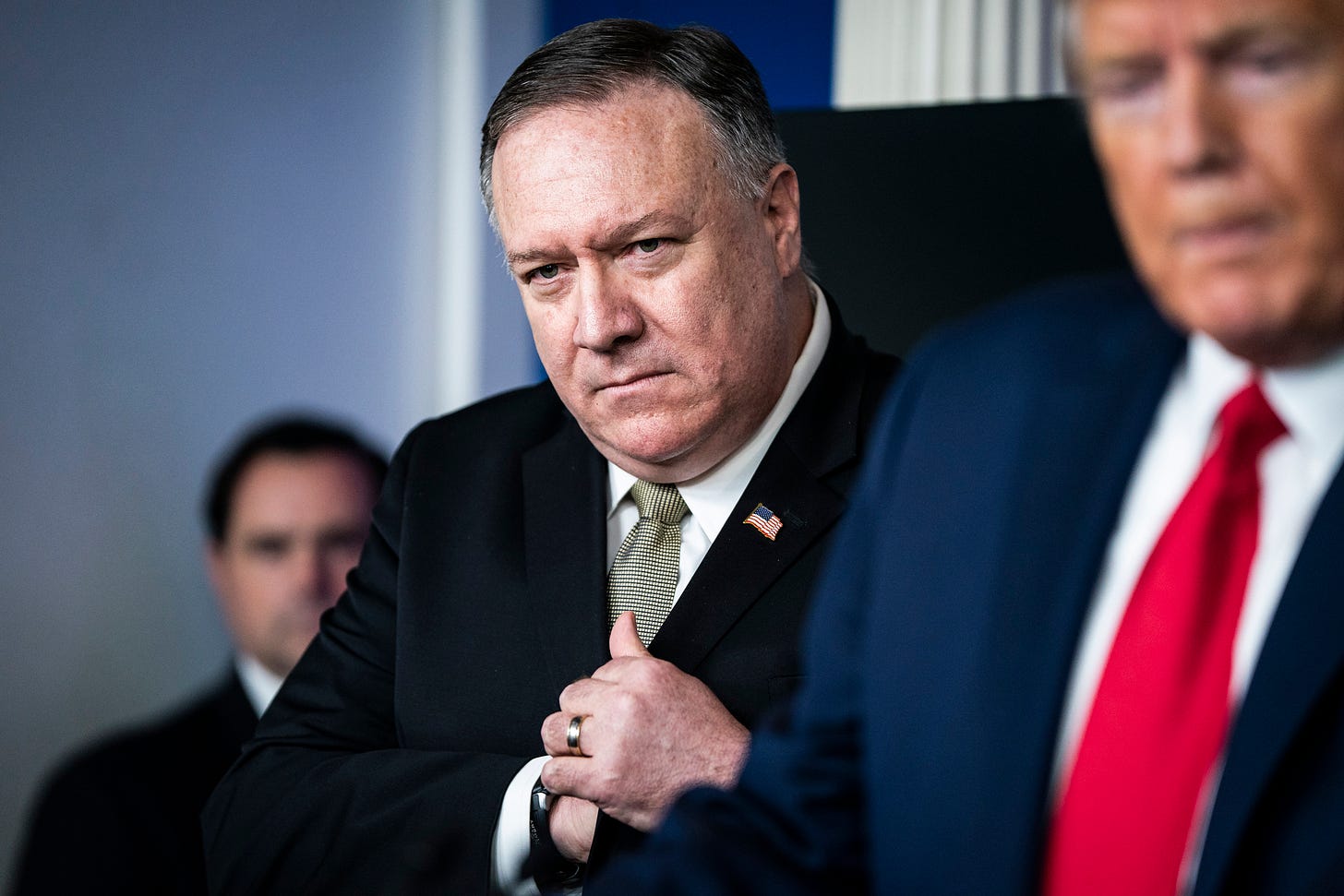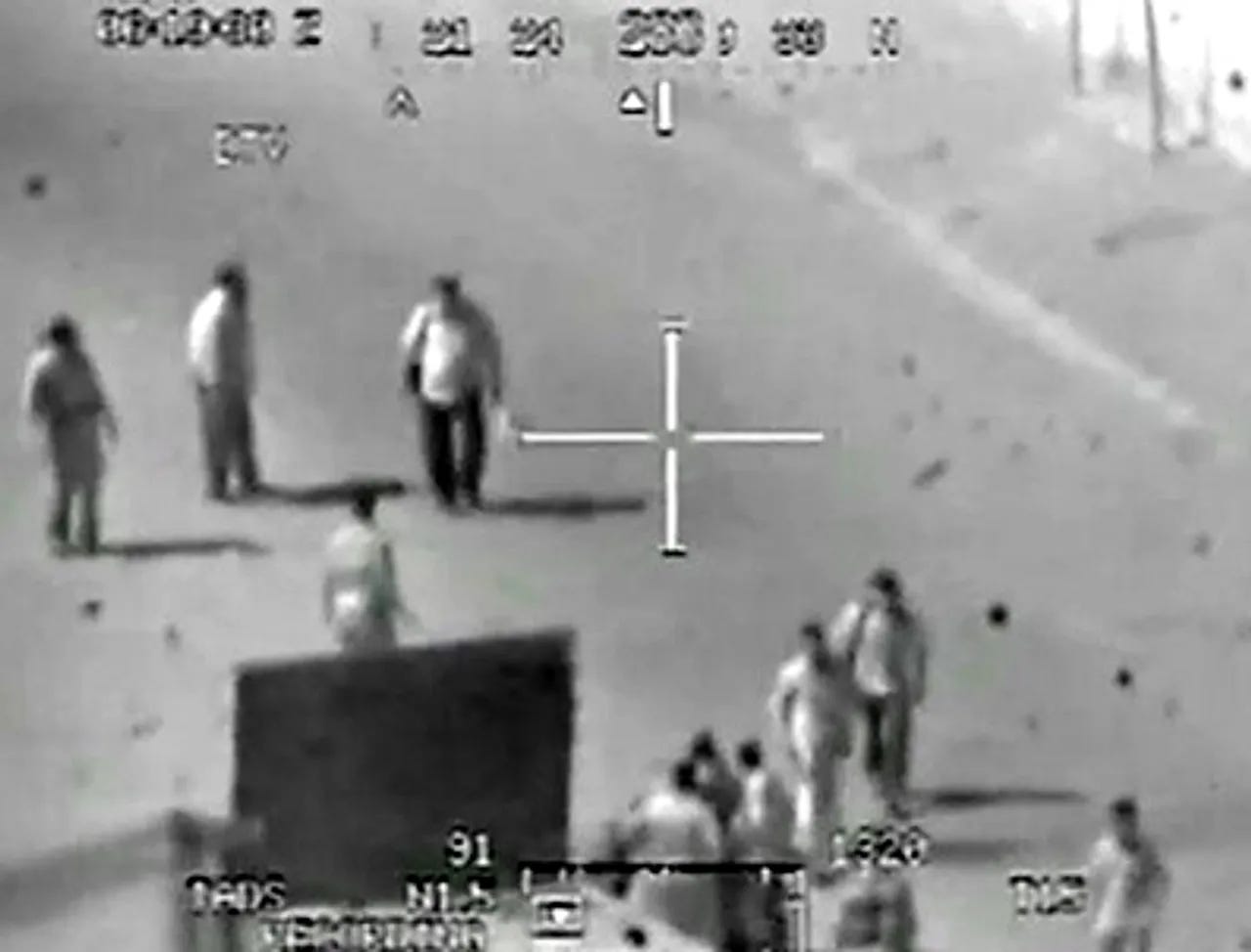Julian Assange Is A Working Class Hero
The truth behind the deceit of the capitalist media, and why Assange's ongoing torture is a disaster for the entire "free world".
If anyone should know what human rights violations look like, its Nils Melzer: Melzer has been investigating them for 20 years, after all; and not only is he the Human Rights Chair at the Geneva Academy of International Humanitarian Law and Human Rights, but he is also the United Nations Special Rapporteur on Torture.
But when lawyers representing Julian Assange first asked Melzer to publicly denounce the inhumane conditions their client was being forced to live in, he turned them down flat. “I had this emotional reaction,” Melzer later said in a 2021 interview; “[I was] thinking, ‘oh, this is this hacker, this rapist, this — you know — traitor.’ And I basically ignored the case.”
When Assange’s lawyers tried again a few months later, however, Melzer says they were able to show him “quite impressive evidence” for their allegations1, leading him to start digging into the case himself. And to his surprise, Melzer says,
“the deeper I got into this the more dirt came out — but it was not on the side of Assange and Wikileaks, it was on the side of the government. I couldn’t believe how much corruption I encountered in this case.”
In the end, Melzer’s investigation completely changed his mind about Assange: not only has he now declared that Assange’s living conditions in prison are tantamount to torture, but he has even written a book called The Trail of Julian Assange: A Story of Persecution (2022). But he is still haunted by his initial “emotional reaction” to Assange — a reaction so strong that he now realizes it had blinded him to a clear and ongoing human rights violation, even despite his expertise.
Thus, Melzer says, when approached to speak on behalf of Assange these days, the first thing he has to say is beware of the false media narrative; and
“if you think ‘Assange is a traitor, he’s a rapist, he’s a narcissist, he’s a hacker,’ I don’t blame you — because you have been deceived.”
The message is the medium
In reality, Assange is a publisher and a journalist. Indeed, according to the Pulitzer Prize-winning Glenn Greenwald, Assange is perhaps
“the most consequential, pioneering, and accomplished journalist of his time.”
Moreover, the fact that he is a journalist is not incidental to the case against him. It is precisely for doing journalism (and doing it well) that he is is being extradited to the US, where he could face up to 175 years in prison2. And it is for doing journalism that he has already endured eleven years of torture (three in a maximum security prison and eight in the embassy) despite having been convicted only of jumping bail — a brutal “punishment by process”.
And the fact that Assange is a journalist means that what is happening to him could also happen to other journalists. This is why Amnesty International, Human Rights Watch, Reporters Without Borders, the Freedom of the Press Foundation, and the ACLU — all of whom have called for his release — have also clearly stated that the most significant aspect of his case is the grave threat it poses to press freedom and, thus, to democracy.


If Assange is extradited this threat will be augmented by an absolutely horrifying legal precedent — one that could see other journalists serving similarly outrageous and medieval prison sentences in the US, regardless of where they are from (Assange is Australian and has barely ever set foot in the US).
This is because Assange is the first-ever journalist charged with violating a draconian World War One-era US law called the “Espionage Act” that was originally used to imprison left-wing antiwar activists like Eugene Debs. And while any use of the Espionage Act deserves condemnation, its use against a journalist is unprecedented and, like I said, absolutely horrifying.
Even the Obama administration wouldn’t cross this line, despite famously being more enthusiastic about the Espionage Act than all previous administrations combined. In fact, this is exactly why the Obama administration never charged Assange with espionage: not out of courtesy, of course, but because they simply couldn’t find a way to legally distinguish between Assange and (for example) The New York Times. And unless they could solve this so-called “New York Times problem”, the Obama administration knew, any attempt to charge Assange with espionage would de facto criminalize more traditional and elite journalists, too.
Only under the Trump administration were espionage charges brought against Assange — an administration that was famously adversarial to the press and arguably more inclined to see the New York Times “problem” instead as an opportunity. And the Biden administration, unfortunately facing little public pressure to withdraw these charges, has clearly decided to stay this Trumpian course.

Meanwhile, the extradition of Assange has inexorably proceeded — even despite multiple bombshell revelations that might have been expected to derail it on their own3. For example:
A key witness admitted to lying and was revealed to be a paid FBI informant.
It came out that the CIA had plotted to assassinate Assange while he was trapped in the embassy.
The British Government admitted to spying on his lawyer.
And so on.
And now — right now — with the extradition finally looming, press freedoms are teetering on the precipice. Once Assange is in the US, that could be the end of them: according to legal experts, cases tried under the Espionage Act are — by design — “almost impossible for the government to lose.”
Where is the media?
But if the threat to press freedom is really so dire, it must be asked, why does the media seem so unconcerned by Assange’s plight? Why aren’t they uniformly and loudly demanding his release? Why, indeed, have they instead constructed the false narrative about him that initially even deceived the UN Special Rapporteur on Torture, Nils Melzer?
These excellent questions, like so much in life, only start to make sense when viewed through the lens of class war.
This reveals “the media” to be not a monolith but a patchwork of actors, some of whom are aligned with the capitalist class and the state, and who therefore tend to have the biggest platforms; and some who dare hold the powerful to account, and who therefore often face reprisal. The British journalist Duncan Campbell, for example, thus fondly recalls his 40-year-long career reporting on government mass surveillance:
“I have been raided three times; jailed once; had television programs I made or assisted making banned from airing under government pressure five times; seen tapes seized; faced being shoved out of a helicopter; had my phone tapped for at least a decade; and been lined up to face up to 30 years imprisonment for alleged violations of secrecy laws.”
To journalists towards the latter end of the spectrum, like Campbell or Glenn Greenwald, or Naomi Klein, or Amy Goodman, or Chris Hedges, or Laura Poitras4, all of whom have called for Assange’s release — the threat to press freedom that Assange’s case represents is clear. In fact, while the reprisals he has faced are unprecedented in their degree (commensurate with his journalism), he is also just another casualty of a long-running battle in which many other journalists have also been bloodied — both metaphorically and otherwise.
Whether it was their conscious intention or not, their blood has been shed in the service of the working class. And as extradition draws nearer and his health declines, time is running out to see that Assange does not pay for his service with what is left of his life.

Even though, at the time, Assange was not even officially in prison yet but was still trapped in the Ecuadorian Embassy.
For context: in some countries even mass murderers face 30 year maximum sentences.
The US, meanwhile, has continued to stonewall British requests for the extradition of a CIA operative who fled home after killing an English teen by driving on the wrong side of the road.
Poitras, who made a 2016 film about Assange called Risk, says she has had “serious disagreements” with him and that “there are many reasons to be critical of Mr. Assange”, but that “we should be clear about what he is being prosecuted for and the stakes for press freedom.”



Thanks, Mariana, I appreciate that. I'm proud of me, too. But for the record I still hate acupuncture.
I’m so proud of you for finally awakening to the world of Marxism. Keep it up.